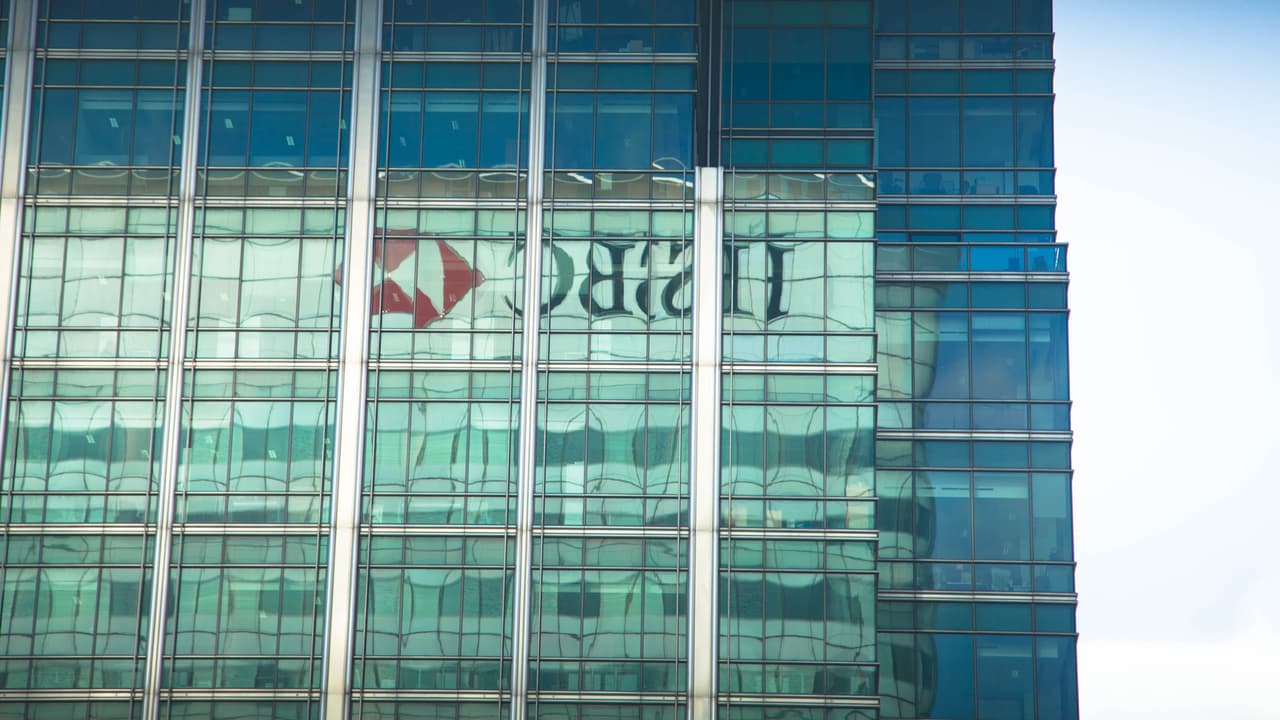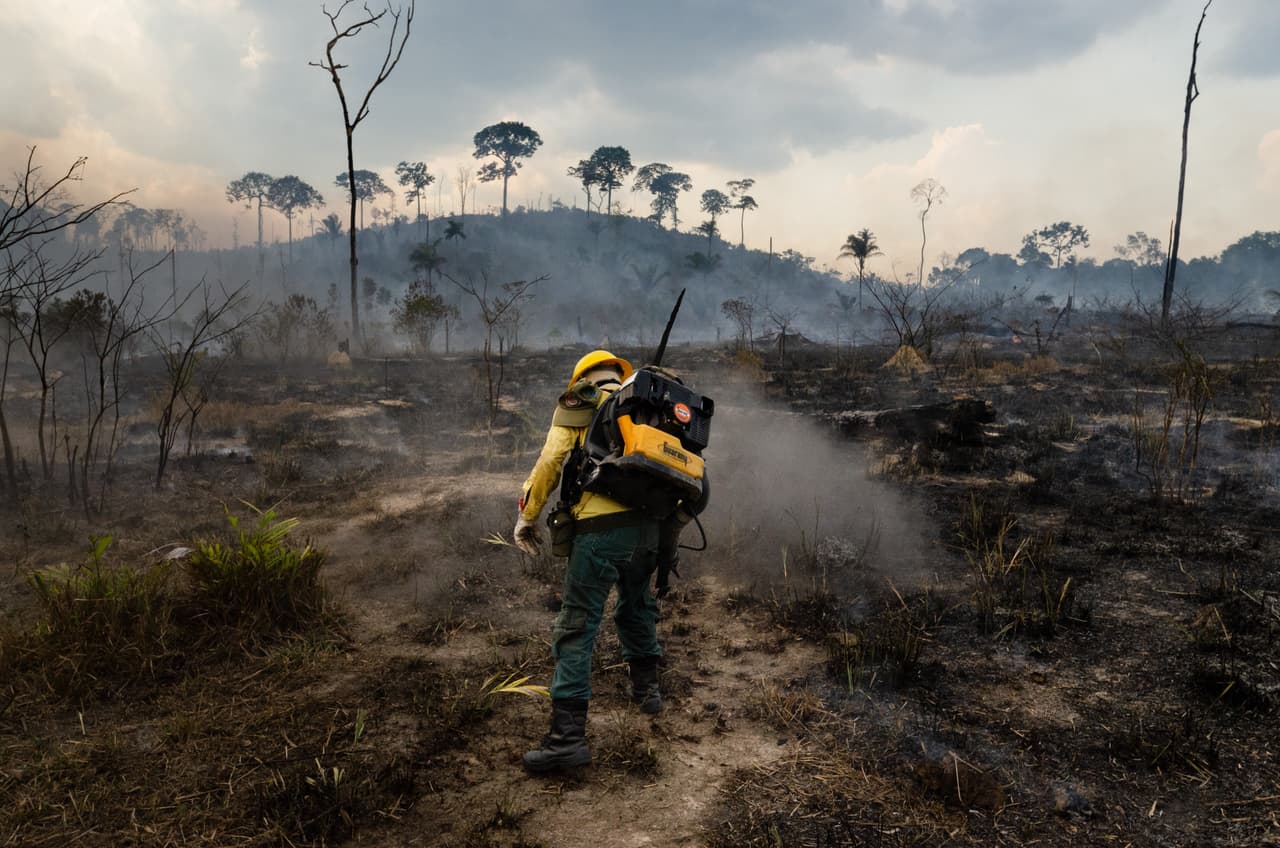
"The pressure's on": HSBC warns meat company JBS over Amazon deforestation
Analysts at global banking giant HSBC have sounded the alarm over the potential risks of investing in JBS, the world’s biggest meat company, after a string of investigations raising concerns about Amazon deforestation in its beef supply chain.
The meat giant “has no vision, action plan, timeline, technology or solution” for monitoring whether the cattle it buys originate from farms involved in rainforest destruction, according to the bank, which has substantial investments in the troubled meat packing firm.
In a recent HSBC financial report on JBS - obtained by the Bureau - analysts say they have asked the company “multiple times” about its plan to address deforestation, but they appear to be unsatisfied, leading them to conclude that “the pressure’s on JBS”.
The analysts express disquiet that the company has allowed a smaller competitor to take the mantle on addressing forest destruction, after Marfrig - another Brazilian beef exporter - committed to full traceability of its Amazon cattle by 2025.
“We have never seen a major industry leader default an industry matter this serious to a smaller participant,” says the report. “It is the major risk on JBS that worries us because it speaks to seriousness of purpose on ESG [environmental and social governance] matters for a company that in our view, has something to prove.” It adds: “There is a valuation benefit that goes with being the largest solution provider to deforestation in Brazil and unfortunately, we don’t see JBS inclined to lead and own that title.”

JBS, which has annual revenues of $50bn and slaughters almost 35,000 cattle a day in Brazil, is coming under increasing pressure from investors over its environmental record. The investment arm of northern Europe’s largest financial services group last month dropped the company from its portfolio. JBS is now excluded from assets sold by Nordea Asset Management, which controls a €230bn (£210bn) fund.
Nordea said it took the decision because of concerns over the meat giant’s links to ranches involved in Amazon deforestation, its response to the Covid-19 outbreak, past corruption scandals, and frustrations over engagement with the company on such issues.
The HSBC report cites a recent investigation by the Bureau, Guardian and Reporter Brasil revealing that JBS’s own trucks moved cattle from an illegally deforested ranch in the rainforest to a “clean” farm, which sends some of its cattle to JBS abattoirs.
Although JBS strongly disputed the findings, the revelations appeared to contradict the company’s claims as to why it is unable to monitor the more distant parts of its beef chain, and prompted calls for supermarkets and fast food chains to immediately cease trading with JBS.
HSBC analysts discuss JBS’s recent attempt to split the Brazilian part of its business from its global operations, in order to float the international arm on the New York Stock Exchange with no Amazon risk for investors.
While considering whether the smaller Brazilian company that would be left behind could be more capable of fixing the rainforest problem, the analysts also question whether investors could view the split as “JBS washing its hands of an ESG issue it needs to solve as the market leader, potentially making the deforestation problem harder to solve”.
The report also refers to other chequered aspects of the global giant’s record, including allegations of corruption against some of its holding company executives that led to them being repeatedly arrested.
“After its legacy of governance and corruption problems, JBS’s board and senior leadership are in need of proof points that the firm has indeed turned over a new leaf on ESG responsibility matters,” it said. JBS said it would not be commenting ahead of reporting its quarterly results on Thursday.
Despite expressing concerns, the HSBC report does still recommend buying JBS stock. “We like JBS for its debt reduction story, diverse portfolio of proteins, geographic footprint, leadership in the industry and scale. Its proposed [New York] listing would likely improve governance if done correctly, reduce cost of capital and strategically position the company for new growth opportunities.” HSBC holds JBS shares and bonds worth some $9 million, according to recent research by the NGO Feedback. HSBC told the Bureau that those holdings were usually held on behalf of other parties and that in such cases the bank had no part in the decision to invest in specific companies.
The bank’s report comes amid mounting global anger over the fate of the world’s biggest rainforest. The Amazon is a crucial buffer in stabilising the regional and global climate. Experts say preserving it is essential if a climate emergency is to be averted.
Deforestation in the biome increased by 34% in the twelve months to July compared with the previous year, according to Brazil’s satellite research agency. And international demand for beef is directly fuelling the problem: about 5,800 square kilometres of forest — an area four times the size of Greater London — is being felled annually in the Amazon and other areas of Brazil to be converted into pasture for cattle farming.
Last year, a study concluded that JBS’s global beef exports were linked to up to 300 square kilometres of deforestation per year in Brazil.




